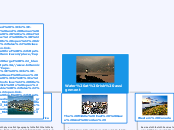realizată de James Major 6 ani în urmă
211
Water at risk assignment
Water scarcity in the Middle East, particularly in Gaza and Jordan, has led to significant governmental restrictions, with some towns receiving water for only 12-24 hours per week. This has resulted in varied social reactions; some remain hopeful for improved water access, while others turn to water theft.









